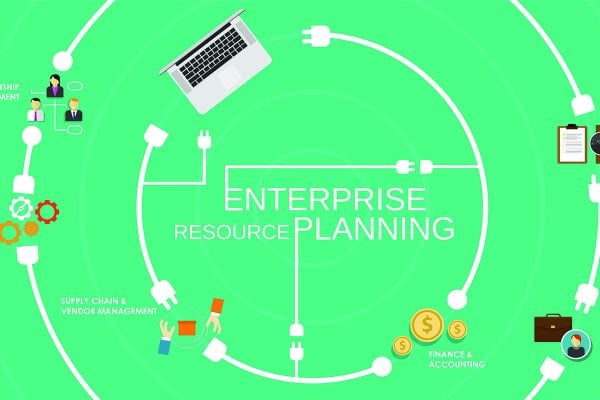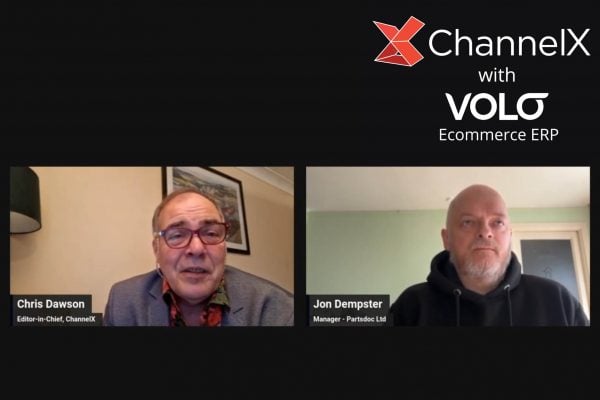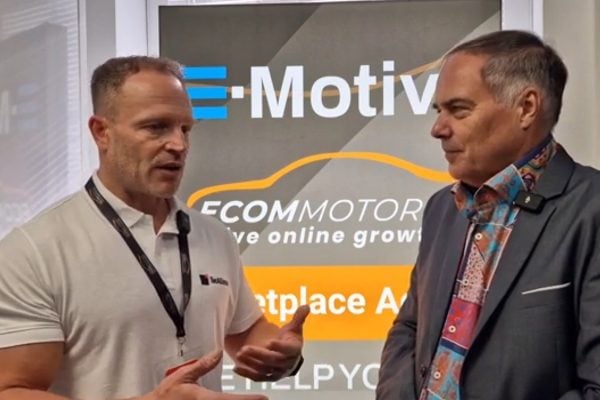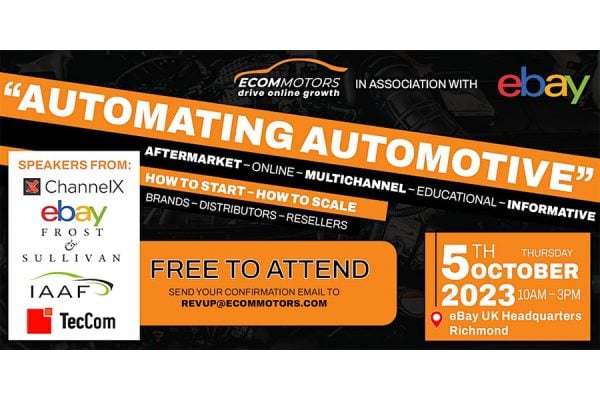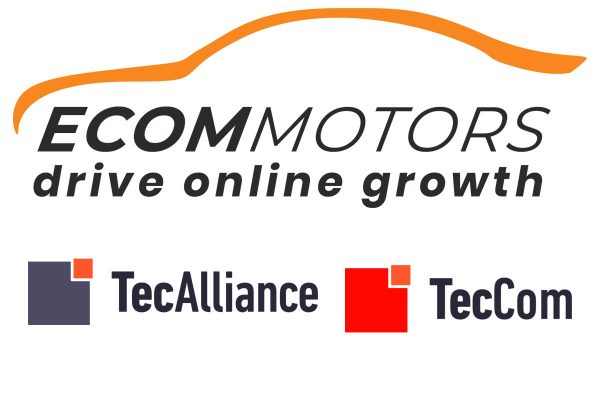TLDR
If you’re a £2m to £25m GMV-a-year ecommerce business, an ERP system will scale your growth and profits by connecting your different processes, tasks and online channels into an automated whole.
Paul ‘Dilge’ Dilger, CEO of Volo Commerce, outlines why everyone running a business over £2m a year should get to know the concept and benefits of ERP.
What is an ERP System?
ERP is Enterprise Resource Planning. That’s for big boys, right, massive FTSE-100 companies who need SAP® to keep tracks of the millions and billions? Not so. The chances are if you’re reading this then you’re an enterprise too, a small to medium sized enterprise (SME), with under 250 staff and under £45m a year in revenues.
An ERP system connects your customers, channels, suppliers, products, payments and shipments. More specifically for ChannelX readers, an ecommerce ERP system, or eERP, does the same thing, but more loaded towards the demands of online retail. eERP systems help you reduce manual and duplicate processes by automating all the areas of your business, which might currently be separate:
- Purchasing
- Supply
- Warehousing
- Inventory
- Listing
- Marketplaces
- Web stores
- Orders
- Shipping
- Customer service
- Customer relationship management (CRM) and marketing
- Accounting
- Reporting and analysis
eERP is the backbone to your business. Just like with the human body, everything hangs off it, and relies on it for good performance.
Why Should I Care?
You should care about ERP if you want to scale your business. Growth is about increasing your online sales whatever the cost. Companies that come into a market and undercut the competition are growing, but not profitably. Scaling is about increasing your online sales while keeping your costs as low as they can be, which positively affects profits.
What this directly speaks to is being more productive; doing more and doing things more quickly with what you have. And increasing productivity is why people invest in systems and software, because then they can automate processes that used to be more manual, or more disconnected.
eERP tackles head on the challenge of complexity in your business. You probably sell multiple products with multiple variations, which you get from multiple suppliers with multiple different terms. You probably store your products in multiple bins, aisles and warehouses. You list your products in multiple places, so you have orders coming in from multiple sources, from multiple customers, that you will need to ship using multiple carriers.
Inventory management systems and order management systems reduce complexity by allowing you to manage all this activity in one place, so you’re not duplicating processes and efforts, saving time on updating stock levels, prices and getting orders out to your customers. eERPs don’t just do the IMS and the OMS, they encompass all – or at least most – areas, streamlining your business into one coherent whole.
It follows then, that the more parts of your business you can connect, streamline and automate, the more you can scale your business. This is the promise of eERP, bringing together the different functions of ecommerce from one end to the other, from supply all the way around to shipping and back to supply in one continuous circle.
What’s the right ERP discovery path for me?
OK, so what should your eERP solution – or solutions – look like? I’m going to generalise now, but:
- If you’re doing less than £2m a year, you probably don’t need one, yet (although you can be doing plenty of things to automate the flow of data through your business, maybe starting with order management)
- If you’re doing £2m to £25m a year, then a single eERP system is probably going to be a good fit for you
- If you’re a £25m+ a year business, then you’re probably going to graduate to a larger ERP system with additional functions like HR and manufacturing/production, or maybe you’ll take a best of breed approach and stitch together a range of best-in-class solutions
- If you’re a mid-sized business doing £50m to £500m a year, or a big business doing £500m+ a year, you’re probably looking at SAP® (and Microsoft®, Oracle®, IBM®; others are available)
It’s all about the fit, so make sure you map out your requirements, prioritise them, and then speak to a shortlist of providers to see who will best meet your needs, for your budget. A good provider will also realise that the most crucial part of the buying process is the requirements analysis, so will probe and question to validate the clearest idea of where you want to go.
In a later post in this series, we’ll look at the kinds of costs and timeframes you need to allow for a typical eERP project.
You can find out more about Volo eERP here, or else contact them for a chat and watch the video above to meet Paul ‘Dilge’ Dilger, Volo CEO.
In the video:
- 00:00 Introducing Paul ‘Dilge’ Dilger & Volo Commerce
- 01:53 What is ERP?
- 04:21 The difference between order management solutions and ERP
- 08:27 How to choose the right ERP for different sized businesses
- 13:20 What’s the most important step for companies who want to embark on an ERP journey
- 15:28 ERP reporting and automation for profitability
- 18:25 The sweet spot for implementing ERP
